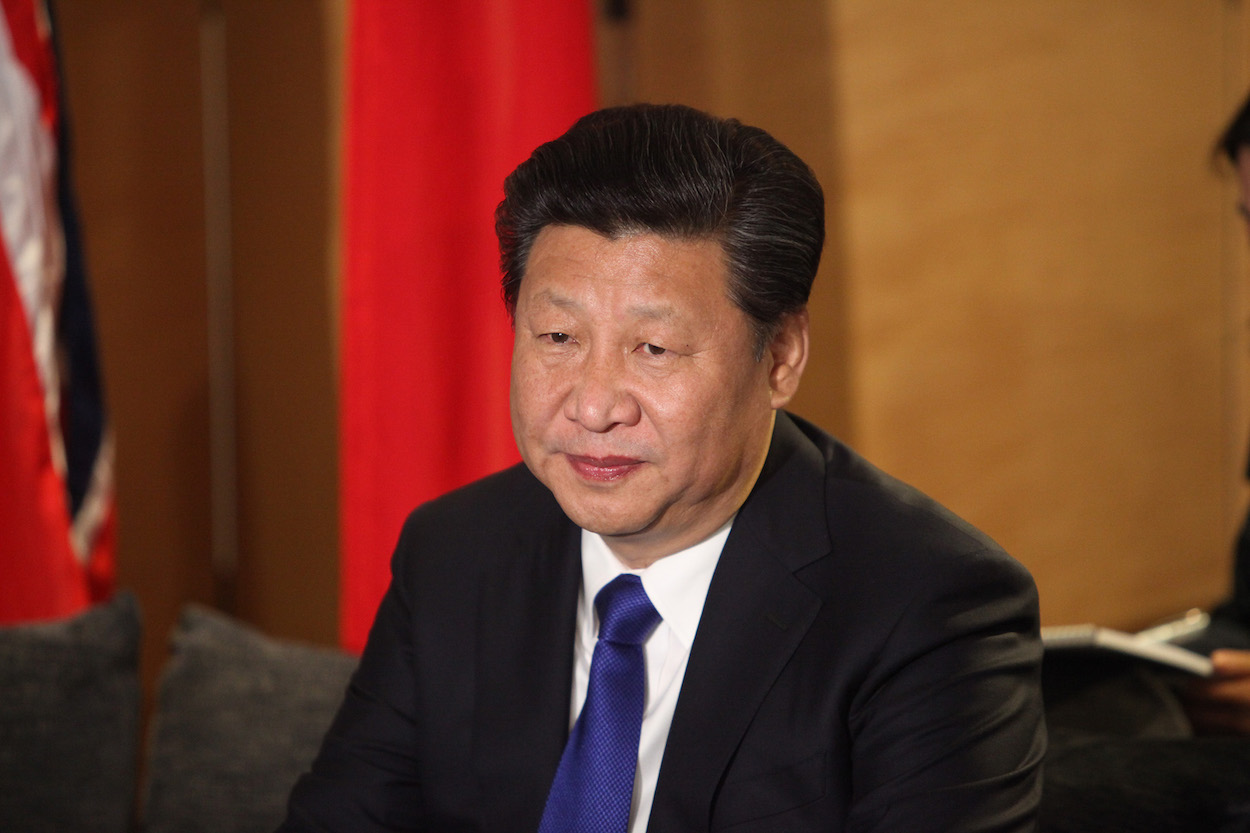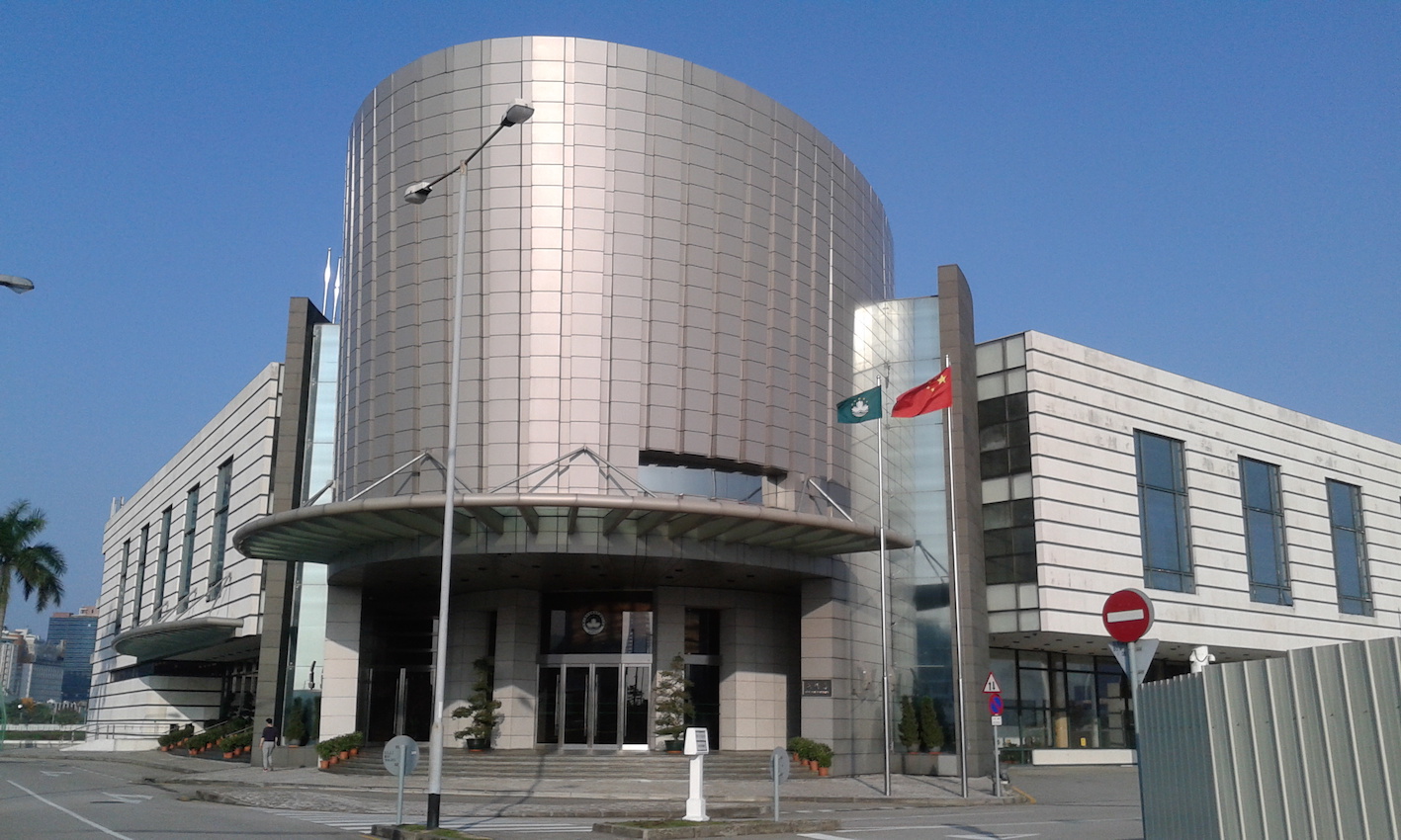by Brian Hioe
語言:
English
Photo Credit: Kremlin/Public Domain
CHINESE PRESIDENT Xi Jinping visited Macau for three days last week in order to commemorate the 20th anniversary of the 1999 handover of Macau from Portuguese control to Chinese control.
Much of the comments made by Xi during his visit indicated that much of what he said was, in fact, directed toward Hong Kong. In particular, Xi Jinping touted Macau as indicating the success of One Country, Two Systems, insofar as “harmony” prevailed, the city loved China, and citizens expressed their views “rationally”. According to Xi, patriotism was “the most important reason” for the success of One Country, Two Systems in Macau. Xi also warned against efforts by foreign powers to interfere in Macau or China’s affairs.
 Chinese president Xi Jinping. Photo credit: Foreign and Commonwealth Office/Public Domain
Chinese president Xi Jinping. Photo credit: Foreign and Commonwealth Office/Public Domain
To emphasize the connection to Hong Kong, Hong Kong Chief Executive Carrie Lam was also present at the handover commemoration. Lam met with Xi during her time in Macau.
During the commemoration of the handover, Ho Iat-seng, who previously served as the president of Macau’s legislative assembly, was sworn in as Macau’s third Chief Executive since the handover. Ho was voted in by a 400 member selection committee, similar to how Hong Kong’s Chief Executive is chosen by a 1,200 member selection committee, winning 392 out of 400 votes.
Before Xi’s visit, security measures for the visit led to restrictions on public transport in Macau, and activists and journalists from Hong Kong being prevented from entering Macau. Among China-governed territories that are outside of the Chinese mainland, Macau is sometimes thought to have higher security than Hong Kong regarding restrictions on entering.
At the same time, criticisms have ensued from both Hong Kong and Macau activists regarding Xi’s claim that Macau represents a successful example of the implementation of One Country, Two Systems. Among those to pen an editorial on the matter was Joshua Wong of Demosisto and Jason Chao, the former president of the New Macau Association political party, who wrote in The Independent that the implementation of One Country, Two Systems in Macau and Hong Kong was simply too different for there to be comparison between the two. According to the article, the implementation of One Country, Two Systems in Macau brought Macau’s governance more in line with China, and so this was different than the high degree of autonomy promised to Hong Kong.
Indeed, many observers have pointed out the historical circumstances between Macau and Hong Kong. Macau does not have a history of protest against Chinese rule on any comparable scale to Hong Kong, with the passage of an anti-secession law in 2009 that saw little protest. By contrast, attempts to pass a similar law in Hong Kong in 2003 in the form of Article 23 of the Hong Kong Basic Law saw 500,000 take to the streets in protest. Before the outbreak of the protests in Hong Kong that have gone on for the last half-year, this was the largest protest in Hong Kong history.
It is generally believed that the differences between responses to Chinese authority in Macau and Hong Kong are due to historical and demographic differences. For one, pro-China groups were already dominant in Macau by the time of the 1999 handover, having won a great deal of power from the Portuguese government after riots in the 1960s. While similar rioting took place in Hong Kong in the 1960s, British colonial authorities remained firmly in control.
Likewise, the proportion of immigration from China is much higher in Macau, as compared to Hong Kong. Chinese immigrants to Macau since the 1999 handover may actually outnumber residents of Macau that were born and raised there, comprising more than half of the current population of Macau. This demographic difference is reflected in Macau’s government, seeing as that of the leading ten officials in government, five were born in China.
 Macau’s Legislative Assembly building. Photo credit: Doraemon.tvb/WikiCommons/CC
Macau’s Legislative Assembly building. Photo credit: Doraemon.tvb/WikiCommons/CC
Macau’s economy is also differently structured that Hong Kong’s, being less diverse in terms of international investment, and depending primarily on its casino industry. In turn, Macau’s casino industry is dominated by a small set of powerful individuals.
There have been attempts to form pro-democracy parties to run for office in Macau before. However, organizers of pro-democracy parties have seen retribution from the government for their action and, at present, the pro-democracy camp in Macau holds only four out of 33 seats in the legislative assembly of Macau. Similar to Hong Kong, functional constituencies that allow corporate and industrial interests a direct seat in government make it an uphill struggle for pro-democracy parties to gain a majority in government.
One expects protests in Hong Kong to continue. However, in the wake of Xi’s comments in Macau, it seems likely that China’s long-term plan to resolve Hong Kong’s political crisis continues to be to try and enforce some version of One Country, Two Systems. References to patriotism as the reason why Macau has been a successful example of the implementation of One Country, Two Systems seem to indicate that strengthening ideological controls is still the solution that China seeks in Hong Kong. What comes next remains to be seen.

